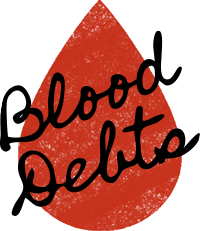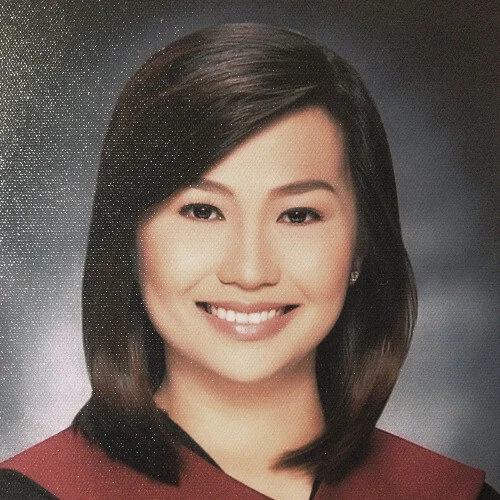Episode 13: Utang Na Loob, Debts as Overseas Filipino Worker (OFW) & as a Creative
Transcript
VOX POP BEGINS
There's material debt and then there's like nonmaterial debt, and on one side, I'm very, very scared of having that material debt.
For me, it's a feeling inside me, whether it's my conscience or my heart or spirits, and I feel I need to pay it back, that I owe something to.
You know, I think it has affected me in a way that I don't like it and I want to get away from it as quickly as possible. It's blood. It's something inside you. And then when I got to think of it, it's something inside you. It's something more valuable than any material thing, more than money. It's more than anything. It's like having a blood debt. It's like owing someone a part of yourself.
VOX POP ENDS
INTRODUCTION BEGINS
In Blood Debts, we tell the stories of choices and sacrifices to pay back what is owed and pay forward something of value.
I’m your host, Leezel Tanglao.
On this podcast, we talk about one of the few through lines in people’s lives - debt.
You’ll hear stories from the Filipino diaspora around how debt has impacted all aspects of life from those in the medical field, public service sector to creative arts.
As a journalist, I’ve spent more than a decade reporting on the financial aspects of debt in diverse communities.
But many carry debts beyond money.
Yasmin Atienza: It has affected me immensely ever since I was young, because my family usually we run a business and we started from scratch, so we had to take loans, we had to take monetary support for the business.
And ever since then, we were working really hard to pay off debt that we're even paying for it up until now. And that's one of the reasons why I left the Philippines and why I am currently working here now in Dubai.
Leezel Tanglao: In this episode, we talk to Yasmin Atienza, an Overseas Filipino Worker (OFW) living in the United Arab Emirates. We talk about debt as an OFW, utang na loob and what debt looks like in the creative space.
INTRODUCTION ENDS
My name is Yasmin Atienza. I’m an architectural designer based in Dubai, and I'm also a self-taught illustrator. So with debt, I'm not really comfortable with that or having you know, I'm not sure if this is a personal thing or if this is a millennial thing, but I don't like being committed or owning or being someone for a long time.
Maybe it's because I'm a type of person who doesn't like to have that kind of hassle. I want to be free all the time. And I'm in that age. I'm in that certain point in my life where I change my plan, I change my mind drastically, and I just go with different things, given that opportunity presents itself. So I don't like not being able to do a certain thing because I have to owe someone something.
Utang na loob…….So I think it's deeply rooted in our culture, it's there, it's down there. And most of the time I view this as a very unpleasant thing. It's a negative thing for me, because usually when you help someone, you do it because you want to do it and it's the right thing to do. But in our culture, most of the time, Filipinos view it as an opportunity to have someone or you something. It may be it may be not — it's not intentional, but we expect it. You know, Filipinos, you're always expected to return the favor. Usually a thank you is not enough. It's never enough.
You're usually you usually have to return the favor to someone. And I don't I don't like it at all because it gives you an opening to be manipulated. It gives you an opening to bend your principles. It turns to be blind loyalty.
I don't like it at all. It doesn't fascinate me at all, it's a negative thing for me.
OFWs, I enjoy talking to them or their experience because I'm new here. So I want to know more about what they do or what's their family doing in the Philippines. And most of the time when I hear about it, it's more of a negative thing. Like the first thing that I like, the first one that I thought I talked about, it can be weaponized, like, you have to give back us and it's not even, you know, you have no say in it. You have to give it back to us.
But when it's in terms of my family, they don't pressure me into doing such things. So that's why for me, it's more it's more of a gratitude that I want to pay them back because they've experienced so much to raise me in a way. And they raise me like with all their might. And they did all they could so they can so I can have a comfortable life. So in a way, I want to give it back to them here. It's kind of blurred the line between being grateful to your family and and, you know, having that obligation to to to your family. It's kind of blurred here, thinking that they owe them something.
Leezel Tanglao: Yasmin has built a following of 37K Instagram followers under her handle @friday_illustrations with a focus on nature women and Cosmo style affirmation graphics. As a creative, she discusses what creatives owe to themselves and their audiences.
I know I'm making stuff, but I don't know..is there a debt? Is there debt in this this kind of industry? because initially we're just free, you know, we just do what we want. You just it's based on our emotions. But upon trying, this is what I came up with. So for creatives, I think it happens when for the people who appreciate our art as artists, we're really grateful to the people who appreciate what we do. And now we have a lot of different platforms. We have Instagram, Facebook and Twitter. And in these platforms we see the number of followers, the number of people who support you.
So it's kind of putting a lot of pressure in me because usually when people follow you, they're expecting something from you. They appreciate what you do. They support you. So. So we because of this, we owe it to them that a lot of people are, you know, like for you and for example, you owe it to the people who shared my post to you that I'm getting this interview.
We owe it to them to make something that they can appreciate more or that can satisfy their tastes, we make so so because of this, we make something or we make a piece the same as before, so we don't lose these people. But for creatives, this is really a scary thing.
Or for me at least, it's a scary thing because I make these pieces based on what I feel a certain moment. You know, it's true. Art is a form of expressing ourselves. It's kind of cliche. It's kind of cheesy, but it's true.
It's a form of communicating ourselves to the world. And because of this, we know that our style, it's bound to change because if you're not changing, you're not growing. It's true in general. So for artists as well.
So when we change our style, when we change our content, we lose people, we lose we lose supporters. And I think this is because they the people, they forget that we just make mistakes, not for them, but for us to express ourselves.
So I think that in a way for artists is that we try to pass changing our style. We try to pass changing. We try to pass developing our ourselves just to satisfy the people. And because we think most of the time that we owe it to them to do something that they want to do, something that they appreciate because they support it in a way. So, yeah, I think that is what that looks like in an artistic space for creatives to think the same way. You know, you have to get out of your comfort zone all the time because that's where you get the ideas from.
OUTRO BEGINS
There are many sides to debt.
This series intends to take you on a journey through defining and redefining debt through stories of Filipinos in the diaspora.
That’s all for this episode, thank you for listening.
To find out more about the series and upcoming episodes and resources, visit Blooddebts.com
Follow us on Facebook, Twitter and Instagram.
Blood Debts is produced and hosted by me Leezel Tanglao.
This series is a legacy project of the Filipino Young Leaders Program.
Shoutout to FYLPRO Batch 8.
This series is dedicated to all those who struggle to talk about uncomfortable issues and for all those who ever felt overlooked.
I see you.
I hear you.
OUTRO ENDS

